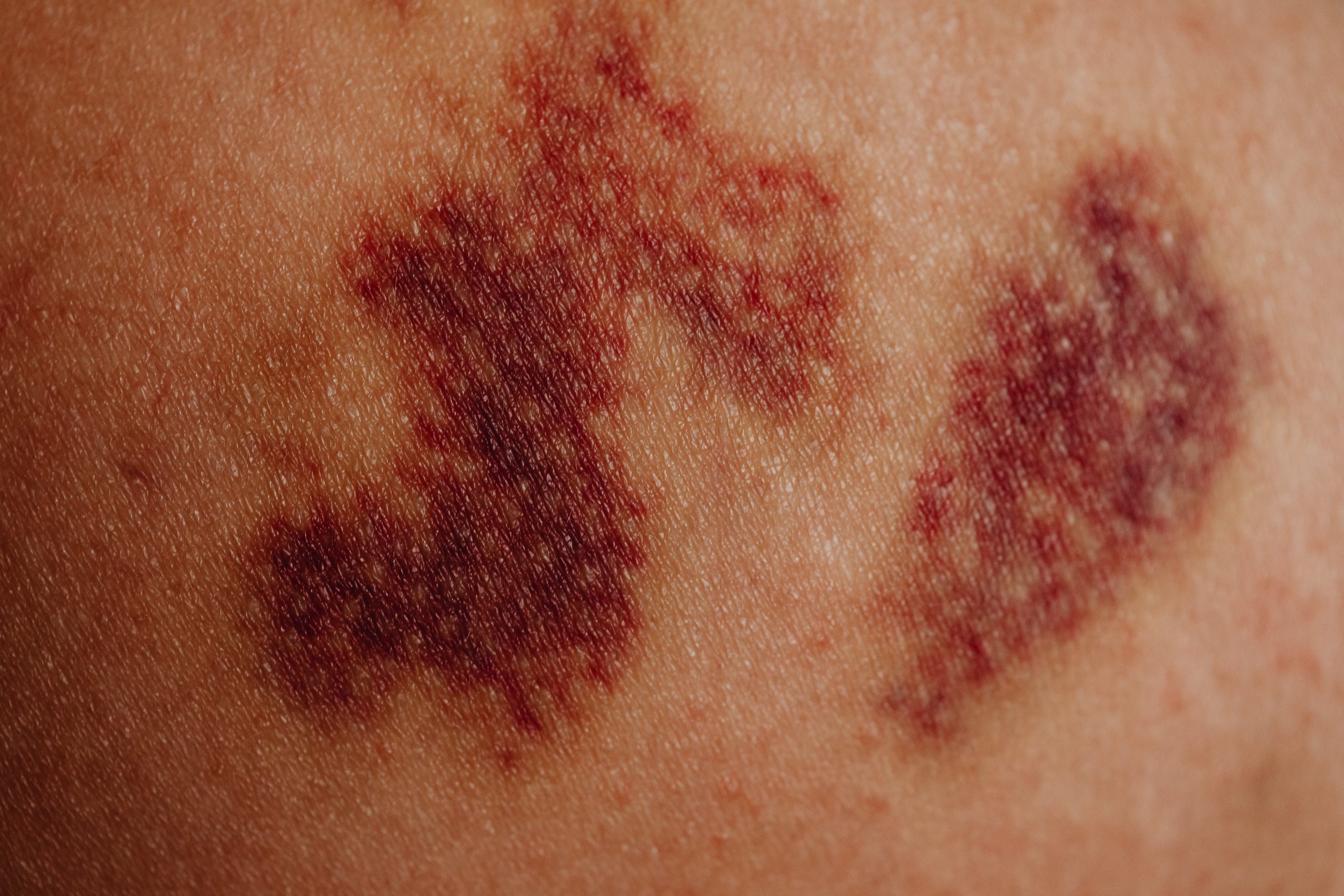Inflammaging: What Is It And What Are Its Side Effects?

A creative writer with a voracious appetite for fashion, beauty,…
S
ome words seem alien until you start getting wiser, or perhaps older. While some mask themselves in the bliss of ignorance, it’s often our responsibility to research our future and how to cushion the effects of factors that are likely to affect us, including aging. This is true for physical, mental, and skin health. For instance, did you know that chronic inflammation can have harmful effects on our bodies, leading to various age-related diseases?
What is Inflammaging?
Inflammaging is a term that refers to the chronic, low-grade inflammation that occurs in the body as we age. It’s a natural part of the aging process, but it can have harmful effects on our health over time.
Inflammation is the body’s natural response to injury, infection, or stress. It’s a complex process that involves the immune system, and could often be a good thing. For example, when we get a cut or wound, inflammation helps heal the area by bringing immune cells to the site of the injury to fight infection and promote healing.
However, when inflammation becomes chronic, it can have negative effects on the body. Chronic inflammation is thought to contribute to the development of various age-related diseases, including heart disease, diabetes, and Alzheimer’s disease. It can also accelerate the aging process by damaging cells, tissues, and organs.
What causes Inflammaging?
- Cellular stress: Over time, our cells experience stress from various sources, such as UV radiation, pollution, and unhealthy diets. This stress can cause damage to the cells, which triggers an inflammatory response. The longer we live, the more stress our cells accumulate, which can lead to chronic inflammation.
- Immune dysfunction: As we age, our immune system becomes less efficient at identifying and fighting off harmful pathogens. This leads to a condition known as “immunosenescence,” which means our immune system becomes less effective at defending us against disease. This inefficiency can lead to a chronic, low-grade inflammatory state.
- Senescent cells: Senescent cells are cells that have stopped dividing due to damage or age. While these cells may not divide anymore, they still produce inflammatory signals that can trigger inflammation in nearby tissues. The more senescent cells we have in our bodies, the more inflammation we may experience.
- Dysbiosis: Our gut microbiome plays an essential role in maintaining our overall health, and a healthy gut is crucial in preventing inflammation. However, as we age, our gut microbiome can become imbalanced, leading to a condition known as “dysbiosis.” This imbalance can lead to inflammation in the gut and throughout the body.
- Epigenetic changes: Epigenetics refers to changes in gene expression that occur without changes to the DNA sequence. As we age, our epigenetic profile can change, which can lead to changes in gene expression that promote inflammation.
Effects of Inflammaging

- Increased risk of chronic diseases: Chronic inflammation can contribute to the development of several age-related diseases, including heart disease, type 2 diabetes, cancer, and Alzheimer’s disease.
- Impaired immune function: It can weaken the immune system, making it less effective in fighting infections and illnesses.
- Accelerated aging: This condition can contribute to cellular damage and oxidative stress, which can accelerate the aging process and lead to age-related health problems.
- Cognitive decline: It has been linked to cognitive decline and an increased risk of developing Alzheimer’s disease.
- Decreased muscle mass: Chronic inflammation can lead to muscle wasting and a decrease in muscle mass, which can impair physical function and increase the risk of falls and fractures.
- Poor gut health: Inflammation can disrupt the balance of bacteria in the gut, leading to digestive problems, inflammation in the gut, and an increased risk of inflammatory bowel disease.
- Skin issues: Chronic inflammation can also cause visible issues on the skin. It could facilitate the aging process by causing wrinkles and fine lines. Neglecting the condition could lead to extreme cases like skin cancer.
These are just a few examples of the potential negative effects of inflammation. It’s important to recognize and address inflammation early on in order to prevent these negative health outcomes and promote healthy aging.
How to prevent and control Inflammaging
- Eat a healthy diet: Eating a diet rich in fruits, vegetables, whole grains, lean protein, and healthy fats can help reduce inflammation in your body. Avoid processed foods, sugary drinks, and foods high in saturated and trans fats.
- Exercise regularly: Regular exercise can help reduce inflammation in your body. It doesn’t have to be anything fancy, just get moving! Take a walk, do some yoga, or hit the gym.
- Get enough sleep: Sleep is important for overall health, but also for inflammation. Aim for 7-8 hours of sleep per night.
- Manage stress: Stress can trigger inflammation in your body, so finding ways to manage stress is key. Try meditation, deep breathing, or other relaxation techniques.
- Maintain a healthy weight: Being overweight or obese can contribute to inflammation in your body. Aim for a healthy weight through a balanced diet and regular exercise.
- Don’t smoke: Smoking is a major contributor to inflammation in the body. Quitting smoking is one of the best things you can do for your health.
- Limit alcohol: Drinking too much alcohol can also contribute to inflammation in your body. If you drink, do so in moderation.
Why it’s important to recognize it early

It’s important for young people to recognize Inflammaging and work against it early enough, because the effects of inflammation can build up over time, leading to serious health problems later in life.
One way to recognize this condition is to pay attention to your habits. Unhealthy habits, such as smoking, drinking too much alcohol, eating a high-sugar diet and processed foods, and not getting enough exercise, can all contribute to chronic inflammation. By making healthier choices, such as eating a diet rich in whole foods, getting regular exercise, and avoiding smoking and excessive drinking, young people can help reduce their risk of developing the condition.
In addition to lifestyle changes, young people can also take steps to support their immune system, which plays a key role in regulating inflammation. This can include getting enough sleep, managing stress, and ensuring adequate intake of key nutrients, such as Vitamins C and D, omega-3 fatty acids, and antioxidants.
By recognizing the importance of reducing inflammation early on, young people can help protect their long-term health and reduce their risk of developing age-related diseases. So, it’s important to prioritize healthy habits and take steps to support a healthy immune system from an early age.
Featured image: fizkes/iStock
For the latest in fashion, lifestyle, and culture, follow us on Instagram @StyleRave_
This is a Style Rave original content exclusively created for our readers. If reproduced, distributed, transmitted, cached, or otherwise used by any other publishing house or blogs, such use should provide a direct link to this source article. Use of and/or registration on any portion of this site constitutes acceptance of our Terms & Conditions and Privacy Policy.
—Read also
A creative writer with a voracious appetite for fashion, beauty, lifestyle and culture. As one who's passionate about the advancement of the woman, creating content that inspire smart style and living, and positive lifestyle changes is a calling I take seriously. At Style Rave, we aim to inspire our readers by providing engaging content to not just entertain but to inform and empower you as you ASPIRE to become more stylish, live smarter and be healthier. Follow us on Instagram @StyleRave_ ♥





